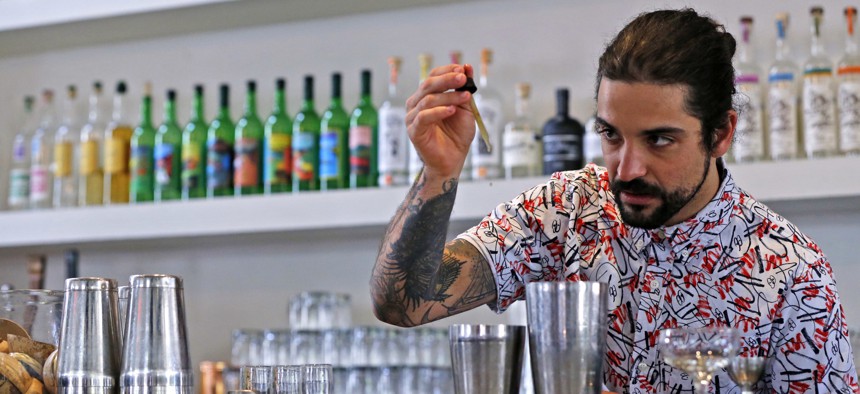“Restaurants in New York City are not permitted to add anything to food or drink that is not approved as safe to eat,” according to a New York City Department of Health spokesperson. “Until cannabidiol … is deemed safe as a food additive, the department is ordering restaurants not to offer products containing CBD.” Eater reports that five restaurants in the city have been visited by the DOH and issued CBD embargoes so far, but because of the compound’s explosive popularity in the past year, scores more could be affected. Starting in July, restaurants that violate the ban could be subjected to fines of up to $650, according to the New York Post.
Even though New York City’s intent to enforce its food-additive restrictions wasn’t announced ahead of time, it’s hardly a surprise that regulatory agencies are stepping in to mediate how CBD is sold. The compound can be derived from both cannabis and hemp plants; while industrial hemp cultivation was made legal in the United States in late 2018, the Food and Drug Administration has made clear that for regulatory purposes, it will treat CBD the same no matter which plant it comes from. The agency considers both illegal as additives in consumer food products, even if it hasn’t announced any specific plans for its own enforcement.
In January, the Los Angeles County Department of Health announced it would be docking points on restaurant inspections for CBD’s use in prepared food and drink starting in July. Maine, which has legalized recreational cannabis, and Ohio, which has a medical-marijuana program, have also cracked down on CBD edibles and prepared foods at the state level. As the compound shows up in more places and products, a continued escalation in enforcement efforts seems likely.
CBD has shown real promise as a treatment for things like epilepsy and anxiety in early research, but as a consumer product, it’s largely unproven and unregulated, which makes it difficult for people to understand what they’re buying or what effect it will have on them. Even in its simplest forms, CBD has no labeling standards or regulated dosage guidelines, and many businesses don’t disclose exactly how much they’ve put in a brownie or latte. At some businesses, customers have difficulty discerning which menu options include added CBD and which don’t.
According to Griffen Thorne, a California-based attorney who specializes in cannabis law, that lack of standardization is what makes most regulatory agencies nervous about CBD. “The packaging and labeling requirements aren’t there yet in states that don’t have a cannabis regime,” he told me when I spoke with him about CBD’s sudden popularity in food. “If you go buy a CBD beverage and it’s not specially packaged—it just looks like another coffee or whatever—someone might take a sip who doesn’t intend to.” Purveyors also often make medical claims about CBD’s effects for which there is little scientific proof, including its potential as an anti-inflammatory and a treatment for aches and pains. Thorne said that those promises could also be a source of legal trouble for businesses in the future.
Cannabis law is changing rapidly across the United States and at all levels of regulation and enforcement, which means that any attempt to cash in on growing consumer interest in weed and its derivatives assumes a certain amount of risk on the part of business owners. CBD in consumer foods might become legal and well regulated in coming years, but for the moment, even states where cannabis is legal seem wary of allowing restaurateurs to inject it into random products. Until then, anxious people looking for something to chill them out can still experiment with CBD in other forms, like oils or topical creams. And they might find that baking their own brownies is even more soothing than ordering off a menu.






